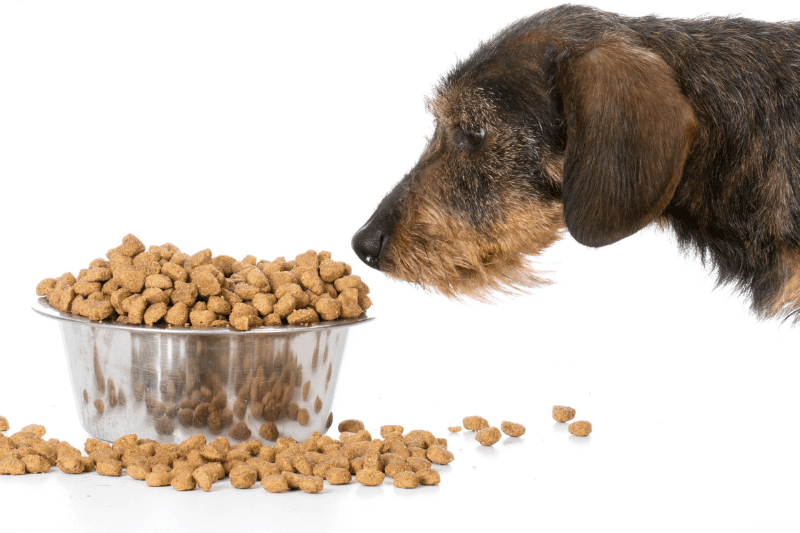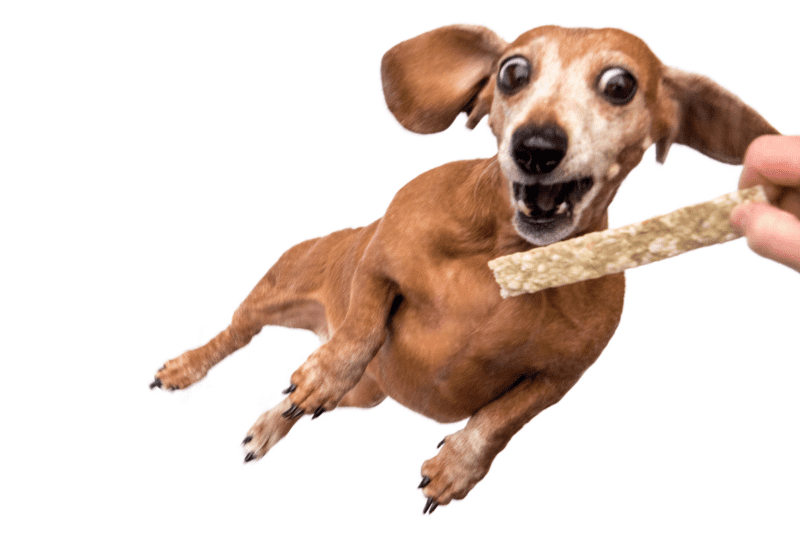
Dachshunds are a beloved breed known for their unique body shape and playful personality; however, they are also prone to various health issues, one of which is food allergies. It is important to be aware of dachshund food allergies and understand how to recognize and manage them.
What foods are Dachshunds allergic to?
Food allergies are caused by a hypersensitive reaction to certain proteins found in food. These are the most frequent allergens found in commercial dog food that can cause allergic reactions in dachshunds.
- Chicken
- Beef
- Dairy
- Grains
- Eggs
These ingredients are frequently used in commercial dog food, making it challenging to identify the source of the allergy. If you suspect that your dachshund has a food allergy, it is important to work with your veterinarian to determine the specific allergen.

How do I know if my Dachshund is allergic to food?
If your dachshund is experiencing allergy symptoms, it is important to determine if they are due to a food allergy or another cause. The symptoms of food allergies in dachshunds can vary, but common signs include:
- Itching, particularly around the face, paws, and ears.
- Chronic ear infections
- Digestive issues such as vomiting, diarrhea, and flatulence.
- Skin rashes or “hot spots”
How is a food allergy diagnosed?
To diagnose a food allergy in dogs, your veterinarian may perform a variety of tests, such as a food elimination trial and blood tests (IgE tests). These tests can help identify the specific food or foods to which your dog is allergic. Once the allergen has been identified, your veterinarian can suggest an appropriate diet to help manage symptoms and reduce discomfort.

How is a food allergy treated?
Once the allergen is identified, treatment typically involves avoiding the food(s) that trigger the allergy. This can be accomplished by feeding your dog a hypoallergenic diet, which may be either a prescription diet or a home-cooked diet carefully formulated to meet your dog’s nutritional needs.
When it comes to managing allergies in Dachshunds, their diet plays a significant role; the right food can help alleviate symptoms and improve overall health. Here are some recommendations for the best types of food for Dachshunds with allergies:
- Limited-Ingredient Diets: Limited-ingredient diets (LIDs) are formulated to contain a limited number of ingredients, making it easier to identify and avoid potential allergens. Look for brands that use high-quality, whole-food ingredients, and avoid common allergens such as wheat, corn, and soy.
- Novel Protein Diets: Novel protein diets use protein sources that are not commonly found in dog food, such as venison, bison, and duck. These protein sources are less likely to trigger an allergic reaction.
- Grain-Free Diets: Grain-free diets are formulated without grains, a common allergen for dogs. However, recent studies have shown a potential link between grain-free diets and heart disease in dogs, so it is essential to consult with your veterinarian before making this dietary change.
It is also important to ensure that your dachshund’s diet is balanced and provides all the necessary nutrients for its health. Consider consulting with a veterinarian or a veterinary nutritionist to determine the best diet for your dachshund.
How long does it take for a dog’s food allergies to clear up?
The timeline for resolving food allergies in dogs can vary; it may take several weeks for the symptoms to improve once the allergen has been identified and removed from the diet.
It is important to be patient and work with your veterinarian to ensure that the diet is nutritionally balanced and appropriate for your dachshund. In severe cases, medication may be necessary to help control symptoms while the allergen is eliminated from the diet.
Food allergies in dogs can be frustrating, causing discomfort and health problems. However, it is important to note that there is no cure for food allergies in dogs; the goal of treatment is to manage symptoms.
Conclusion
In conclusion, Dachshund food allergies can be a serious issue, but with proper diagnosis and treatment, they can be managed effectively. By being aware of the most common food allergens, recognizing the symptoms, and working closely with your veterinarian, you can help your Dachshund live a healthy, happy life.
Related post: Understanding Dachshund Allergies



